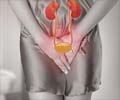Q: Which doctors treat neurogenic bladder?
A: Neurogenic bladder is treated by a urologist who works in close association with the neurologist treating the patient.
Q: Are there any medications which cause symptoms similar to neurogenic bladder?
A: There are several medications that affect bladder function. These include antidepressants, antipsychotics, antispasmodics, and antihistamine drugs among others. The use of these drugs by patients should be ruled out before a diagnosis of neurogenic bladder can be made.
Q: Can prostate enlargement cause neurogenic bladder?
A: Generally prostate enlargement does not cause neurogenic bladder. However a long standing obstruction can lead to nerve dysfunction. Also some of the symptoms of enlarged prostate may mimic neurogenic bladder.
Q: Can kidney be damaged by neurogenic bladder?
A: Yes kidney damage occurs if the resting bladder pressures are high. A patient with this condition should have their kidney function tested regularly along with an ultrasound to make sure that there is no swelling of the kidney and back pressure changes.
Q: How much tea and coffee can I have if I have frequency and urgency due to neurogenic bladder
A: Intake of tea and coffee should be reduced by people with urinary incontinence since they produce excessive urine.
Q: Is there a role for any exercise to control urinary leakage?
A: Kegel exercises are exercises used to strengthen pelvic floor muscles and treat urinary incontinence. The patient is instructed to pull up the pelvic floor muscles as if holding urine for a few seconds and then release slowly. The process is repeated for around 10 repeats three times a day.







